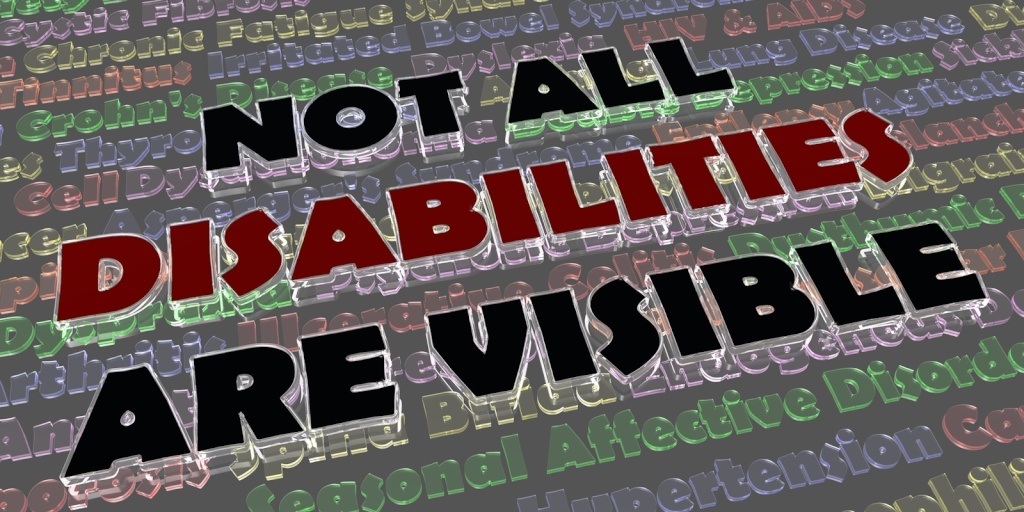Verifying Eligibility and Determining Accommodations | Creating an Accessible Classroom | Providing Accommodations to Students with Letter from D&A | Requests for Accommodations without Letter from D&A | Questions or Concerns | Suggested Dos and Don’ts
What is the Purpose of Accommodations?
Academic accommodations are designed to reduce or eliminate barriers in the learning environment in order to ensure students with disabilities have equal access and opportunity to learn and participate fully in all educational programs at The University of Texas at Austin. The University of Texas at Austin acts in accordance with two relevant laws: Section 504 of the Rehabilitation Act of 1973 and the Americans with Disabilities Act.
As a starting point, here are a few things to know about accommodations:
- provide students with disabilities with equal access to course instruction, materials, and evaluation
- “level the playing field” by reducing/eliminating barriers caused by the interaction between a student’s disability and the learning environment.
- do not guarantee student success and do not provide an unfair advantage
- must be reasonable and cannot alter the essential requirements of a course or program
Instructors who have specific questions about accommodations can contact D&A at 512-471-6259 or access@austin.utexas.edu. More information about the following topics is below.
Verifying Eligibility and Determining Accommodation | Creating an Accessible Classroom | Providing Accommodations to Students with Letter from D&A | Requests for Accommodations without Letter from D&A | Questions or Concerns | Suggested Dos and Don’ts
D&A: Verifying Eligibility and Determining Reasonable Academic Accommodations
Students are responsible for contacting Disability and Access (D&A) and following the process of registering for accommodations, which includes providing documentation of their disability and completing an intake appointment. Specific documentation guidelines exist for each disability category and require a current diagnosis, prognosis, and explanation of how the disability may impact the student’s academic performance. See our Documentation Guidelines for the criteria that must be met in order for students to be eligible to receive accommodations.
 Once appropriate documentation has been received and reviewed, students will meet with a Coordinator to discuss their academic history, barriers they may have encountered because of their disability and what type of accommodations may be necessary to provide the student with equal access to the academic experience at UT. There will always be a direct connection between the barrier a student experiences because of their disability and the accommodations that are approved.
Once appropriate documentation has been received and reviewed, students will meet with a Coordinator to discuss their academic history, barriers they may have encountered because of their disability and what type of accommodations may be necessary to provide the student with equal access to the academic experience at UT. There will always be a direct connection between the barrier a student experiences because of their disability and the accommodations that are approved.
Since most of the students who receive accommodations have invisible disabilities, their need for accommodations may not be readily apparent. Please do not ask a student to disclose the specific nature of their disability as this information is part of their confidential file within D&A. Below are some examples of why a single accommodation might be approved for students with a variety of disabilities:
Student may need to step out of class for 5-10 minutes:
- Students with Crohn’s Disease/Irritable Bowel Syndrome may need to use the restroom frequently
- Students with Diabetes may need to check blood sugar levels/administer medication
- Students with PTSD may need to leave class due to triggers within the classroom (such as content, noises, or images)
- Students with a Panic Disorder or Anxiety Disorder may need to step out in order to manage symptoms of a panic attack
Extended time for testing (either one and a half or double time) unless speed is the factor being tested:
- Students with ADHD may struggle to remain focused and have difficulty filtering distractions
- Students with a learning disability(ies) may need extra time to read questions or formulate a response
- Students taking certain medications for their disability may experience side effects, such as slow processing speed, drowsiness or memory impairment
- Students who have arthritis may physical difficulty with writing for extended periods
*There may be cases where an approved accommodation may not be reasonable given the structure of a specific course. D&A staff are available to help determine whether or not providing an accommodation would change the essential requirements of the course.*
For more information see Accommodations and Services, Working with Students with Disabilities, Invisible Disabilities and Postsecondary Education, or a video about Invisible Disabilities and Postsecondary Education.
| Back to top |
How to Begin: Creating an Accessible Classroom
The first step in providing an accessible learning environment for students with disabilities is proactively establishing an accessible classroom experience. See our suggestions for Creating an Accessible Classroom , which include a sample syllabus statements about the process for requesting accommodations, considerations for choosing accessible materials, and resources for building in universal design concepts.
| Back to top |
Now What? Providing Accommodations to Students with an Accommodation Letter
Ensuring accessibility in the classroom is a group effort between the student, the instructor, and the D&A office. Each member of the group has rights and responsibilities during the accommodation process and understanding the roles and responsibilities of each member can lead to a better working relationship and more clear communication. Instructors are encouraged to learn more about the Rights and Responsibilities of Students and Faculty.
Students registered with D&A must request Accommodation Letters for each class every semester they need to use their accommodations. D&A will send an email notification to both the student and the instructor(s) with links to the D&A Portal where Accommodation Letters can be viewed and/or downloaded. Students and instructors should make arrangements to discuss accommodations (virtually or in person) and how they will be provided within the structure of the course. While it is the student’s responsibility to initiate this conversation with the instructor, instructors can also reach out to students after receiving the notification email. Use our Communication Templates for Instructors to help you get started.
Instructors are then responsible for providing the classroom and/or testing accommodations listed in the Accommodation Letter. Students are also responsible for ensuring that their accommodations are implemented appropriately. For example, students are expected to communicate with instructors proactively about their accommodations, discuss any necessary handouts associated with their accommodations, and inform the instructor if they experience any issues using accommodations in a course.
*Accommodations are not retroactive. Instructors are only required to accommodate students from the date that they discuss the Accommodation Letter.*
For more information on specific accommodations and how they should be implemented please visit our Accommodations and Services and Frequently Asked Questions page.
D&A and the Texas Center for Disability Studies have created an eight minute video to demonstrate how instructors and students should discuss the accommodation letter. The video also includes common mistakes made by students and instructors. We hope this video helps instructors feel prepared and confident about discussing accommodation letters with students.
| Back to top |
What if a Student Requests an Accommodation Without a Letter from D&A?
If a student requests accommodations for a disability but has not provided the instructor with a letter from D&A, the instructor should request an Accommodation Letter or refer the student to D&A if they are not already registered. If the disability is visible (use of a wheelchair, hearing aids, service dog, etc.) and the requested accommodation is obviously appropriate, the faculty member should provide the accommodation while the student is in the process of registering with D&A. See Making a Referral to D&A for tips on how to connect students with services.
| Back to top |
Questions or Concerns About How to Provide an Accommodation?
If an instructor has questions or concerns about how an accommodation may apply in their class, they should contact the student’s assigned Coordinator, whose name and contact information will be listed in the Accommodation Letter.
D&A is here to support the academic efforts of students with disabilities and serves as a resource to instructors help meet this goal.
| Back to top |
Dos and Don’ts For Providing Accommodations
| Do | Don’t |
|
|
|
|
|
|
|
|
Chart Adapted from the APA’s DART Toolkit: Legal Issues-ADA Basics. PDF Format: Do and Dont’s for Providing Accommodations.
If questions or concerns arise when accommodating students, please contact D&A for assistance and consultation.
For more information about working with students with disabilities, click here.
| Back to top |



